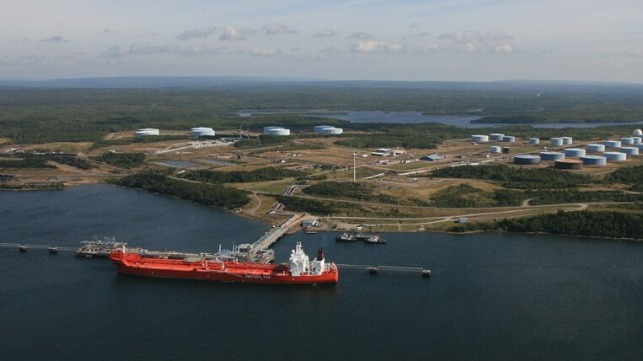Canada Approves North America’s First Green Hydrogen Production Plant

Canadian start-up EverWind Fuels reports it has received what it believes is the first environmental approval for an independent project for the large-scale production of green hydrogen and green ammonia in North America. With the approval issued by the Government of Nova Scotia, EverWind expects to commence construction in the first of 2023 for phase one of its operation projecting that it will begin producing and exporting 200,000 tons annually in 2025.
The EverWind project is part of the massive deal between Canada and Germany signed last year that calls for the development of an export operation for the alternative fuels. EverWind has offtake agreements with the German energy firms E.ON and Uniper that will acquire the production and ship it in the form of liquid ammonia aboard tankers to Germany.
The plan calls for an investment of $6 billion for the develop of the facility at Canada’s existing port at Point Tupper, Nova Scotia. EverWind won the rights to the Crown land in a December 2022 tender and is currently applying for leases on 137,000 acres of land. They plan to develop a 2GW onshore wind farm at the time which would be used to supply the power to run the electrolyzes to produce the hydrogen. The product would be fueled by the wind turbines as well as the use of solar power ensuring that it would be certified as a green production facility.
According to the company, the Point Tupper terminal with its existing, operational marine terminal is the deepest ice-free berth on the East Coast of North America. Point Tupper is located on the Strait of Canso, in western Cape Breton Island. EverWind agreed to buy the location, which includes a 7.8 million-barrel storage terminal for $60 million from a Texas-based company NuStar Energy.
EverWind says the site has capacity to produce more than 10 million tons per year of green ammonia. With approximately C$1 billion of existing storage and logistics assets, they believe Point Tupper is an ideal hydrogen hub. They also highlight that it has existing connections via critical infrastructure including rail, road, and pipelines, in addition to its port facility.

that matters most
Get the latest maritime news delivered to your inbox daily.
Currently, according to the International Energy Agency, green hydrogen accounts for less than one percent of global hydrogen production. Most of the world’s green hydrogen production is happening in China but efforts are expanding around the world as part of the effort to speed the adoption of alternative fuels.
EverWind plans to rapidly scale up production to reach 1 million tons by 2026,while in Germany efforts are also underway to develop the import terminals that will be required. Uniper and its partners have said the LNG terminal built at Wilhelmshaven would serve as the basis for developing a broader alternative energy import hub. Germany would receive the ammonia which could be converted into hydrogen or used to fuel future generations of transportation and industrial production as well as to make fertilizer.
